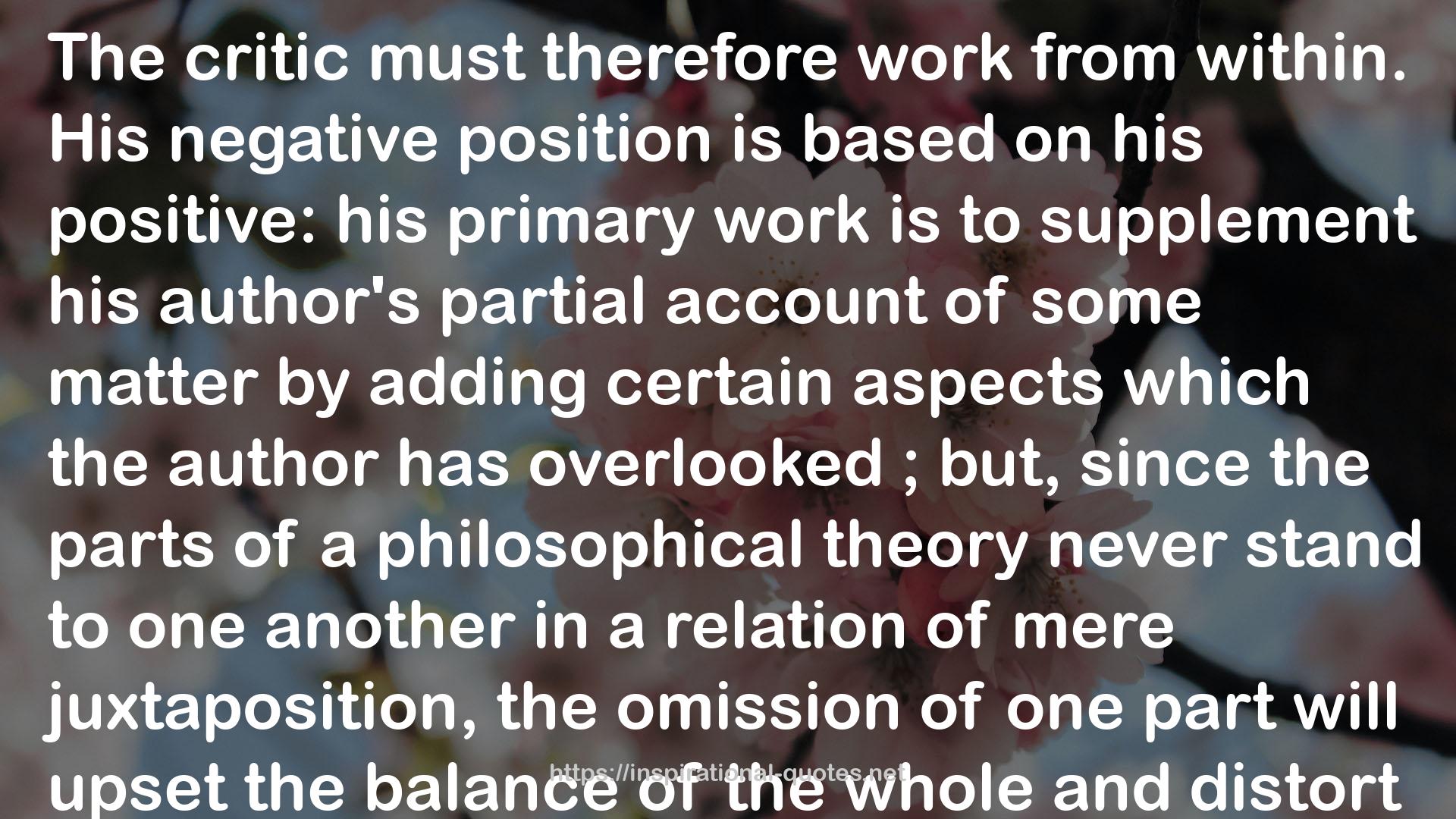" The critic must therefore work from within. His negative position is based on his positive: his primary work is to supplement his author's partial account of some matter by adding certain aspects which the author has overlooked ; but, since the parts of a philosophical theory never stand to one another in a relation of mere juxtaposition, the omission of one part will upset the balance of the whole and distort the remaining parts; so his additions will entail some correction even of those elements which he accepts as substantially true.
20. Criticism, when these two aspects of it are considered together, may be regarded as a single operation: the bringing to completeness of a theory
which its author has left incomplete. So understood, the function of the critic is to develop and continue the thought of the writer criticized. Theoretically, the relation between the philosophy criticized and the philosophy that criticizes it is the relation between two adjacent terms in a scale of forms, the forms of a single philosophy in its historical development; and in practice, it is well known that a man's best critics are his pupils, and his best pupils the most critical. "
― R.G. Collingwood , An Essay on Philosophical Method
